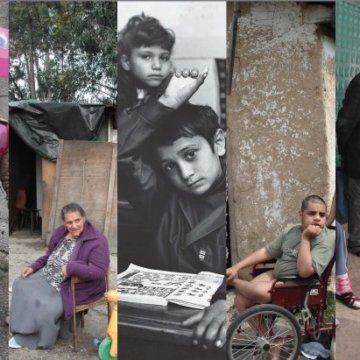- About
- Topics
- Picks
- Audio
- Story
- In-Depth
- Opinion
- News
- Donate
- Signup for our newsletterOur Editors' Best Picks.Send
Read, Debate: Engage.
| located: | Slovakia |
|---|---|
| editor: | Maria João Morais |
Last week, the Slovakian Government announced its intentions to implement a specific law against "Roma crime". Under the premise of fighting criminal activity, the legal reform aims to create a database on the ethnic origin of offenders. Announced by Slovakian minister Robert Kaliňák, the new bill also increases police powers in the central European country.
The move has been condemned by the European Roma Rights Centre (ERRC), who announced they would take the Interior Ministry to court over discriminatory policing relating to Roma people. The organisation accused the ministry of “institutional racism” and warned that the new legislation could be “misused to persecute already marginalised communities.”
However, it is not the first time that Slovakia has been in the news for its ill-treatment of Roma communities. In the summer of 2013, a 3 metre wall was built in the outskirts of the city Kosice separating Romani and Slovakian families, an action deemed illegal by the European Union. Furthermore, last year, ethnic segregation in the country’s schools was exposed by Amnesty International.
While heavily reported, Slovakia is far from being the only European country failing to integrate its Roma population. The continent is estimated to have 10 to 12 million Roma people, of which more than 70% live in poverty and face severe employment difficulties. Across Europe, this community is still a target for discriminatory practices on the basis of ethnicity. Some of these originate from government policies that restrict their rights to citizenship. In countries where they have been living for generations, some Roma people still remain stateless. This reality is particularly evident in countries such as Romania, Ukraine, Italy and the Balkans, where thousands of Roma have been left stateless after the break up of Yugoslavia.
The lack of a nationality results in further discrimination: difficulty in obtaining work as well as accessing property and basic services such as health and education. Without documentation and identification, they are also unable to travel and search for better life prospects in different countries.
There is still a very long way to go and much to be done to fully integrate the Roma community into society. The European Union must, therefore, take steps in addressing the lack of rights affecting thousands of Roma people, without which they cannot aspire to a life with the basic conditions expected by any other European citizen.
